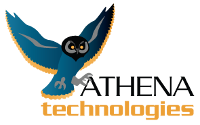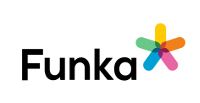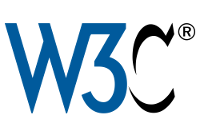 Athena
Athena
ATH is an Israeli SME with a focus on AT and eAccessibility. Besides R&D and engineering ATH provides expertise in developing tools (engines) for cognitive accessibility with the related background in linguistics, natural language processing and user centred design. ATH has a leading role in the W3C activities related to cognitive accessibility.
Dart
 DART as part of a university clinic has strong background in cognitive sciences, clinical psychology, service and support for people with severe cognitive disabilities. DART brings in the innovative Concept Coding Framework (CCF) for implementing the semantic rich knowledge base for selecting standardised or personal symbols, pictures, videos or text alternatives. DART has a strong background in clinical (linguistics, therapy, psychology) and socioeconomic aspects including age related aspects and disabilities studies for the target group. As a clinic DART also provides an ideal environment for educating, preparing and including co-researchers and developing /implementing IPAR.
DART as part of a university clinic has strong background in cognitive sciences, clinical psychology, service and support for people with severe cognitive disabilities. DART brings in the innovative Concept Coding Framework (CCF) for implementing the semantic rich knowledge base for selecting standardised or personal symbols, pictures, videos or text alternatives. DART has a strong background in clinical (linguistics, therapy, psychology) and socioeconomic aspects including age related aspects and disabilities studies for the target group. As a clinic DART also provides an ideal environment for educating, preparing and including co-researchers and developing /implementing IPAR.
FunkaNu

Funka is an innovative and pioneering SME in the web accessibility field with a strong expertise in inclusive and user centered engineering, consulting and business development including tools and services for cognitive accessibility. The company originates from an NGO started by the joint disability organisations in Sweden in the mid 1990s. Funka is active in standardisation and strategic consulting on policy implementation in many European member states and is regularly supporting the European Commission. The company has long lasting experience in EU projects including social and economical studies and has a strong international network for fostering dissemination and exploitation.
JKU
 JKU besides having long lasting expertise in R&D and project management (participation in more than 90 R&D grants, about one third as coordinator) in AT, eAccessibility, usability and software engineering, JKU brings in solid user centered design experience based on running the service center for students with disabilities at university. This includes internal staff with social, humanities and cognitive science background and close cooperation with the center psycho-social counselling and gender equality in the same building. JKU employs researchers with disabilities and has therefore strong experiences in inclusive R&D and engineering. JKU is also a national competence center for economic studies in the social sector. PhDs on personalisation and adaptation of HCI for accessibility are ongoing.
JKU besides having long lasting expertise in R&D and project management (participation in more than 90 R&D grants, about one third as coordinator) in AT, eAccessibility, usability and software engineering, JKU brings in solid user centered design experience based on running the service center for students with disabilities at university. This includes internal staff with social, humanities and cognitive science background and close cooperation with the center psycho-social counselling and gender equality in the same building. JKU employs researchers with disabilities and has therefore strong experiences in inclusive R&D and engineering. JKU is also a national competence center for economic studies in the social sector. PhDs on personalisation and adaptation of HCI for accessibility are ongoing.
KI-I
 KI-I is a non for profit spin-off of JKU KI-I brings in R&D expertise in AT and accessibility and has a particular role in fostering the uptake and transfer of R&D results in the AT, accessibility and care/service sector. KI-I is a leading developer and user of the AsTeRICS framework to be used for tracking and HCI purposes and runs the PROQUALIS quality evaluation scheme for the regional government and employs 9 persons with cognitive disabilities. Based on this other professional services including inclusive R&D are being developed. This provides an ideal environment for educating, preparing and including co-researchers and developing and implementing IPAR-UCD.
KI-I is a non for profit spin-off of JKU KI-I brings in R&D expertise in AT and accessibility and has a particular role in fostering the uptake and transfer of R&D results in the AT, accessibility and care/service sector. KI-I is a leading developer and user of the AsTeRICS framework to be used for tracking and HCI purposes and runs the PROQUALIS quality evaluation scheme for the regional government and employs 9 persons with cognitive disabilities. Based on this other professional services including inclusive R&D are being developed. This provides an ideal environment for educating, preparing and including co-researchers and developing and implementing IPAR-UCD.
PIKSL
 PIKSL, a non for profit NGO focusing on the vocational inclusion of people with cognitive disabilities with related psychosocial expertise, provides an ideal environment for educating, preparing and including co-researchers and developing and implementing IPAR-UCD.
PIKSL, a non for profit NGO focusing on the vocational inclusion of people with cognitive disabilities with related psychosocial expertise, provides an ideal environment for educating, preparing and including co-researchers and developing and implementing IPAR-UCD.
Texthelp
 TextHelp is a leading provider of digital tools, AT and services for cognitive accessibility in the UK with strong
TextHelp is a leading provider of digital tools, AT and services for cognitive accessibility in the UK with strong
business, exploitation, dissemination and economic study background. TextHelp brings in tools and expertise for
reading and writing for cognitive accessibility as:
- Text to speech in over 30 languages
- Dictionary Definitions in 5 languages
- Picture Dictionary in 12 Languages
- Text prediction in 5 languages
- Homophone Detection in English
- Dyslexic Spelling checker
- Text Maturity Assessment (English)
- Text Summary Tool
- English Idiom Spotter
TextHelp has more than 20 years expertise in user centered and inclusive engineering including the needed socio
psychological, cognitive science and market expertise.
TUD
![]() TUD brings in particular expertise and know-how in rehabilitation engineering and teacher education for inclusion of people with disabilities including long lasting research on the inclusion of people with cognitive and learning disabilities and the related social, cognitive, psychological, disability studies and pedagogical aspects. A specific focus is given both to cognitive accessibility (natural language processing and linguistics, easy to read) and to the IPAR method (PhD student and several other R&D activities).
TUD brings in particular expertise and know-how in rehabilitation engineering and teacher education for inclusion of people with disabilities including long lasting research on the inclusion of people with cognitive and learning disabilities and the related social, cognitive, psychological, disability studies and pedagogical aspects. A specific focus is given both to cognitive accessibility (natural language processing and linguistics, easy to read) and to the IPAR method (PhD student and several other R&D activities).
W3C
 W3C/WAI develops hosts and manages the globally recognised, referenced and used standards, guidelines, techniques and tools for web accessibility including all aspects of “understandability” for cognitive accessibility. This includes extended expertise in multi-stakeholder consensus processes involving industry, research, user organisations, government bodies, and individual experts as well as a strong background in R&D and empirical studies. W3C brings this know-how and expertise and provides access to and facilitates cooperation with all relevant working groups for cognitive accessibility.
W3C/WAI develops hosts and manages the globally recognised, referenced and used standards, guidelines, techniques and tools for web accessibility including all aspects of “understandability” for cognitive accessibility. This includes extended expertise in multi-stakeholder consensus processes involving industry, research, user organisations, government bodies, and individual experts as well as a strong background in R&D and empirical studies. W3C brings this know-how and expertise and provides access to and facilitates cooperation with all relevant working groups for cognitive accessibility.
